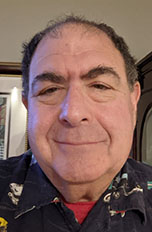By Ben Dishman, Pharm.D

SAN DIEGO — Ever walk down the boardwalk in Pacific Beach or downtown at the Embarcadero on a beautiful sunny afternoon day and notice raggedly dressed individuals sleeping on park benches? They look as if they have not showered in years and if you got close enough your nose would tell you that you were probably right.
Many of the individuals we observe on that park bench have schizophrenia. We as a nation neglect those individuals not out of loathing but out of ignorance. These individuals are labeled as personas addicted to drugs and alcohol. But we are too quick to judge. Often a schizophrenic individual tries to fit in somewhere in society. If you are hearing voices and exhibiting weird behavior you may try to find friends with the same issues. Street drugs cause hallucination and bizarre behavior. The schizophrenic may think ‘Ah ha I think I have found some friends.’ So not only does the individual have schizophrenia he or she is now a drug abuser. The same goes for alcohol addiction.
To put yourself in their shoes, Imagine, you suffer with schizophrenia. You are hearing voices, some of which may be nice (picture Harvey the rabbit) and others tormenting (picture ‘The Shining’ living in your head). You have a bad case of paranoia that someone is out to get you or for that matter everyone may be out to get you. You leave home to try to get away from the voices that seem to “know where you are.” You’re not capable of taking care of yourself. You have no money nor for that matter do you have any insight into what to do, even if you had money.
You sleep during they day because you have been attacked and beaten during the night. From your viewpoint, it is safer to stay awake at night and sleep in the daylight when passing crowds offer protection. The police pick you and realize you have a problem. Hopefully you have not pulled out a phone or a pencil and gotten shot. They take you to a holding tank and draw some blood. If you are in bad enough shape they take you to the county hospital for observation and to clean you up.
It’s realized that you have a mental illness and you are given some medication, which may stop the voices and the paranoia before they send you on your way. But many individuals like you have no insight into your mental disorder. You hit the streets with a few pills, which you may take or may not take. You may share them or sell then to a drug addict who finds them useful to stop the drug-induced hallucination they have.
You find yourself back in police custody through a revolving door. After being cleaned up and given a few pills you are sent to a community living center, basically a tent city with multiple bunk beds. You still have paranoia, why the hell would you want to live with a lot of strangers when you left your own family due to paranoia?
Once again you are picked up by the police, but this time you are placed in a psychiatric hospital for a stay. You have proven over and over again you are not capable of caring for yourself without medications but well-meaning legislation has led to a Catch-22 in your life.
The Catch-22 is laws ensuring that an individual’s personal freedom is not infringed upon. In our society we have been led to believe that everyone is better off if they are not incarcerated. Under the law, if you can tell someone in authority that you know where your next meals will come from and where you will sleep that night, you are free to go.
The social workers and professionals know this is a bad idea but funding is scarce. In addition, it is a judicial battle, which takes time and money to get a patient permanently incarcerated. So you are back onto the streets and the tragic merry-go-round continues.
Our society has underfunded the treatment of mental illness. Out of sight and out of mind is how many wish this to be handled. Many park benches now contain dividers making sleep or rest impossible. Park benches have been removed altogether from downtown areas hoping to move the poor so they will be away from our view.
Lets look into ways to improve the situation for those in our society suffering from schizophrenia. Lets not just remove them from our view.
*
Ben Dishman, Pharm.D, is a retired psychiatric pharmacist who specialized at the Veteran’s Administration in treating patients with mental illnesses.
Unfortunately, everything you write is all too true. In San Diego and around the world. For the last couple thousand years. Maybe it was different when everyone lived in small villages and multiple families raised children. Sadly, the world is too connected and disconnected for that kind of concern and care for the “other” to occur again.